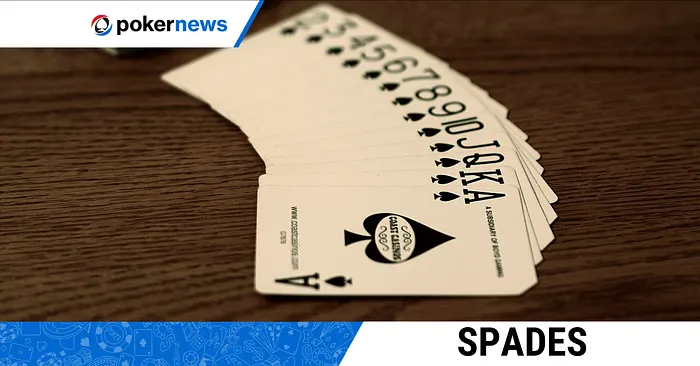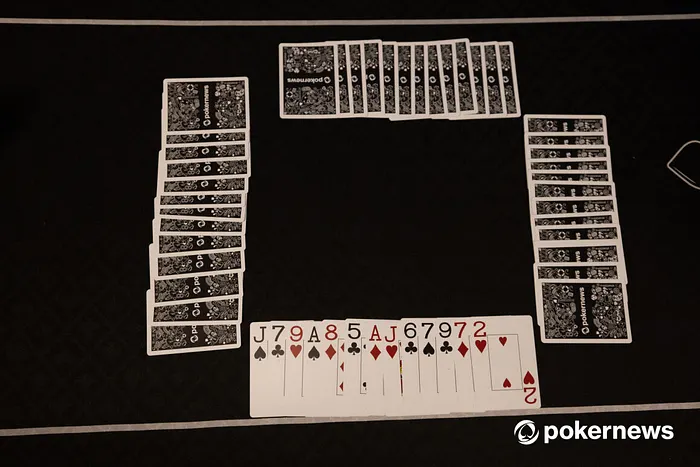Spades Strategy - Mastering the Art of Tactical Play

Embark on a journey to master Spades through strategic play, where every card becomes a potential game-changer. In this guide, delve into the best Spades tips and strategies, from bidding tactics to playing the right cards at the right time. Discover how strategic thinking elevates your Spades game to new heights.
The Essence of Spades Strategy
Effective communication stands as a cornerstone in Spades strategy. Coordinating with your partner to relay information about your hand and deciphering their signals can significantly enhance your team's performance. Recognizing recurring patterns in opponents' plays is equally crucial, enabling players to anticipate moves and adjust strategies accordingly.
Strategic bidding further distinguishes skilled Spades players. Mastering these foundational principles creates a solid foundation, allowing players to navigate the game's complexities and contribute to their team's success.
Bidding Tactics in Spades
Bidding in Spades is an art that requires a delicate balance of calculation and intuition—successful bids hinge on comprehensively evaluating your hand's strengths and weaknesses. A thorough strategic assessment considers factors such as the number of high cards, potential tricks, and the overall synergy with your partner's expected bid.
Accurate bidding sets the stage for effective teamwork, as it informs your partner about the strength of your hand. Skillful Spades players often employ tactics such as "sandbagging" to mislead opponents about their true capabilities. Understanding when to bid aggressively or conservatively adds layers to your strategic approach, allowing you to adapt to the ever-evolving dynamics of the game.
Communication and Partnership Strategies
Communication and partnership strategies form the backbone of successful Spades gameplay. In Spades, where collaboration with your partner is pivotal, effective communication becomes a strategic asset. Players often use subtle signals to pass on information about their hands or preferences to their partners. Understanding your partner's style of play is equally crucial.
Successful Spades partnerships are built on trust and a shared understanding of each other's playing preferences. By honing communication and partnership strategies, players enhance their ability to work towards a common goal, leading to a more formidable team dynamic at the Spades table.

Playing the Right Cards at the Right Time
In Spades, mastering the art of playing the right cards at the right time is imperative. Card management is a crucial aspect, requiring players to assess the value of each card in their hand and make decisions based on the game's dynamics. Recognizing when to deploy high-value cards, such as Aces or high-ranking Spades, can significantly impact the outcome of tricks and the overall hand.
Strategic decision-making involves reading the table, understanding opponents' likely holdings, and adapting your play accordingly by making informed choices about which cards to play and when.
Defensive and Offensive Strategies in Spades
In Spades, players must master defensive and offensive strategies to maximize their team's chances of success. Defensive play prevents opponents from fulfilling their bids by carefully managing your card plays. This may include strategically blocking specific suits or trumping opponents' high-value cards.
On the offensive side, players aim to secure their bids by actively pursuing tricks and leveraging strong cards at opportune moments. Striking the right balance between defensive and offensive tactics is crucial for success in Spades. Being able to switch between defensive and offensive play enhances a team's overall performance and contributes to a more strategic and rewarding Spades experience.
Top 4 Tips for Winning at Spades
Clear Communication - To master Spades, it's essential to begin with a solid foundation. Mastering the basics of Spades rules and gameplay fundamentals provides that groundwork. Clear and effective communication with your partner is necessary. Establishing signals and engaging in strategy discussions improve teamwork and coordination.
Adapting Tactics - Adaptability is a critical trait in successful Spades players. Being able to adjust your tactics based on your hand, bidding outcomes, and the evolving dynamics of the game is crucial. As is knowing whether to play defensively or offensively as each hand develops.
Play Your Cards Right - Strategic card management is another critical aspect of Spade's mastery. Knowing when to play high-value cards, when to trump, and when to conserve specific suits contributes to your team's success. This skill involves a keen understanding of the current state of play and the bids at stake.
Analyze Your Opponents - Furthermore, knowing your opponents is a strategic advantage. Observing their playing styles, tendencies, and bidding patterns allows you to adjust your strategy accordingly. Recognizing your opponents' strengths and weaknesses enables you to make informed decisions.
By incorporating these top five Spades tips—mastering the basics, effective communication, adaptability, card management, and understanding your opponents—you'll elevate your Spades gameplay to a new level.
FAQs - Spades Strategy
What are some common mistakes to avoid in Spade's strategy, especially for beginners?
Beginners often make the mistake of overbidding or underbidding. It's crucial to accurately assess your hand's potential and bid accordingly. Failure to communicate effectively with your partner can also lead to misplays and missed opportunities.
How can players improve their ability to read the game and predict opponents' moves in Spades?
Improving game reading skills involves careful observation of opponents' playing styles, understanding their bidding patterns, and adapting your strategy accordingly. Experience and paying attention to subtle cues during the game contribute to better predictive abilities.
Are there specific strategies for success when playing Spades with different numbers of players?
Yes, the number of players impacts Spade's strategy. In games with more players, conservative bidding may be wise, while in smaller games, players might adopt a more aggressive approach. Adjusting strategies based on player count enhances overall effectiveness.
What is the role of psychology in Spade's strategy, and how can players use it to their advantage?
Psychology plays a significant role, especially in bluffing and misdirection. Creating uncertainty in opponents' minds can lead to strategic advantages. Skilled players use psychological tactics to influence opponents' decisions and gain an edge.
Can Spades strategy be applied consistently, or must it adapt based on the specific game dynamics?
While having a foundational strategy is essential, successful players adapt their approach based on changing game dynamics. Flexibility is critical, allowing players to adjust their tactics based on the specific hand, bidding outcomes, and opponents' behaviors.
